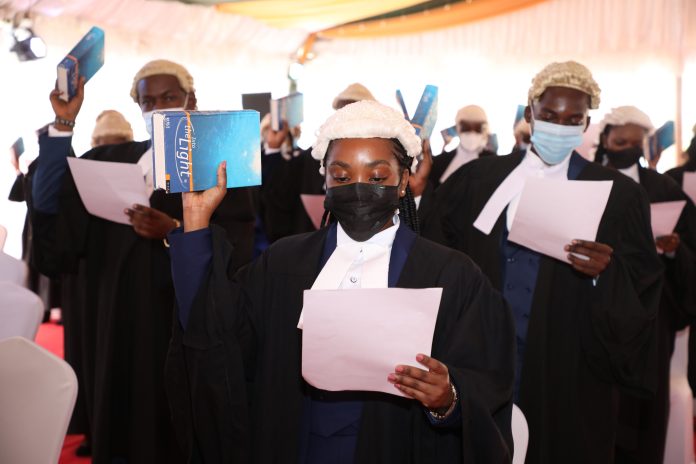To study law in Kenya, you must have a grade B in either English or Kiswahili and a KCSE mean grade of C (plus), according to the Court of Appeal.
On Friday, the court issued its decision in a case in which some law graduates sued the Kenya School of Law for refusing to admit them to a qualifying postgraduate diploma program because they did not meet the grade requirements.
The graduates, led by Otene Richard Akomo, filed a lawsuit against the school in 2020 after it denied their applications to the Advocate Training Program due to their low grades.
In late 2019, the school invited applications for the program, to which they responded.
It stated that law graduate or undergraduate students admitted after December 8, 2014, must have the KCSE minimum qualifications.
The degree would be the only requirement for those admitted to the law degree class before the deadline, according to the advertisement.
To be admitted to the Kenyan Roll of Advocates, one must have a law degree and a postgraduate diploma in law from KSL.
The students argued in the High Court that the KCSE score requirement was unconstitutional and that the only requirement was a law degree from a recognized university.
They claimed the specifications were discriminatory because they divided students into two groups based on the application deadline.
The judge overturned the school’s executive director’s regret letters and ordered their admission.
However, in May of last year, the appellate court stayed the High Court’s decision, preventing the school from being forced to admit the student.
Accepting applicants with low KCSE grades, according to KSL’s appeal argument, would degrade the quality of advocates it would produce for the bar.
A three-judge appellate bench led by Justice Mativo resolved the case, ruling that the Kenya School of Law’s requirements were not discriminatory but lawful.
“The rejection of respondents who did not meet the [KSCE] requirements was not a violation of their constitutional rights or an infringement of any of their educational rights guaranteed by Article 43 (1).” (f). The decision by the appellant [KSL] to deny admission to the ATP for the 2020-21 academic year was made in accordance with the law and is upheld,” the court ruled.
“For the avoidance of doubt, the basic requirements for KCSE under section 16 and the second schedule of the KSL Act are for both applicants who studied in Kenyan universities,” the judgment continued. The section should be read in its entirety, not in bits and pieces, and the three precedent conditions must be met before admission to KSL.”
According to the court, failing to meet the KSCE minimums renders one’s application to be a part of the ATP program incompetent, and thus ripe for rejection.



















